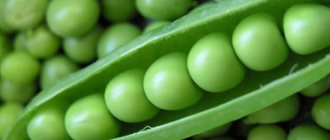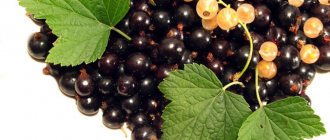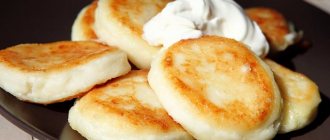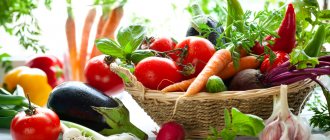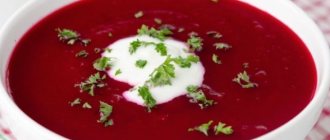Useful properties and composition of cucumber
This vegetable contains a lot of valuable components:
- vitamins B1 (thiamine), B2 (riboflavin), B3, B9 (folic acid), A (beta-carotene), PP (niacin), C (ascorbic acid), E (tocopherol);
- macroelements (potassium, sodium, calcium, magnesium);
- trace elements (iron, cobalt, molybdenum, iodine, copper).
The huge proportion of fiber and low amount of calories make cucumbers simply irreplaceable in human nutrition. Their beneficial properties are:
- vegetable fiber helps prevent constipation, improves intestinal function, and cleanses it;
- thanks to the action of tartronic acid, carbohydrates are not converted into fat;
- protein absorption improves;
- potassium is necessary for the normal functioning of the heart muscle;
- have diuretic properties, cleanse the kidneys;
- are antioxidants, ensure the removal of toxins.
This is an incomplete list of the beneficial effects of cucumbers on the body. They are effective for weight loss after childbirth and are considered a dietary product. Can a nursing mother eat cucumbers? With a reasonable approach - yes.
Cucumbers during breastfeeding
The diet of a nursing woman in the first month of a newborn’s life has many restrictions. During breastfeeding, cucumbers are introduced into the menu gradually; the high fiber content in the vegetable can cause increased gas formation and stool upset in the child.
Table of contents
|
The benefits and harms of cucumbers
Fresh cucumbers are 97% water, which helps remove toxins from the body and also stimulates lactation in a nursing woman.
The vegetable is a food prebiotic - the fibers are not completely digested in the gastrointestinal tract, fermentation causes increased growth of beneficial microflora in the large intestine.
Chemical composition:
- folic acid;
- vitamins B, A and C;
- phosphorus and iron;
- potassium and magnesium;
- iodine and zinc.
B vitamins are involved in metabolic processes and improve the innervation of nerve impulses (from organs to the central nervous system). Potassium is involved in the regulation of blood pressure and strengthens the heart muscle.
Zinc is a powerful antioxidant - it neutralizes the oxidative reaction of active molecules that cause the growth of cancer cells (free radicals).
Ascorbic acid in the vegetable promotes the synthesis of collagen, necessary for bone and connective tissue.
Fresh cucumbers are not capable of fully providing a child’s body with the necessary microelements; the main property is maintaining electrolyte balance in the body.
Including a vegetable in the daily diet increases the absorption of animal protein (building material for cells) supplied with breast milk.
Fiber helps restore the healthy functioning of the gastrointestinal tract during constipation - it stimulates intestinal motility.
Cucumbers do not have a harmful effect on the body of an infant. When introducing a vegetable into the menu, it is necessary to monitor the baby’s reaction; excessive consumption can cause increased gas formation in the intestines and lead to diarrhea.
The vegetable is contraindicated if a woman has gastrointestinal diseases (peptic ulcers, gastritis) or disorders of the urinary system.
The complex carbohydrates in the chemical composition of cucumbers cause increased secretion of hydrochloric acid for the digestion process, which further irritates the gastric mucosa.
The high water content in vegetables puts increased stress on the urinary system. In inflammatory diseases, the kidneys are unable to remove excess fluid, which leads to interstitial swelling.
How to properly introduce vegetables into your diet
Pediatricians do not prohibit the inclusion of fresh cucumbers in the menu of nursing women when the child has reached three months of age.
The newborn's digestive system adapts to the digestion of breast milk, and retroperitoneal spasmodic pain occurs quite often.
Useful tips for mothers: NUTRITION FOR A NURSING MOTHER
A large amount of fiber will provoke flatulence in the intestines, causing new attacks of infant colic.
The main rules when introducing vegetables into the menu:
- Add to the diet gradually (starting with one slice).
- Use in the first half of the day (so that the reaction does not occur at night).
- Use no more than twice a week.
Each child’s reaction to the vegetable is individual and it is possible that no discomfort will arise. Processed food enters the bloodstream after 1 hour, which delivers nutrients to every organ, including breast milk.
It is possible to check the reaction to the product a few hours after breastfeeding; if there are no signs of concern, then the next portion can be slightly increased.
Gradual adaptation of the baby's digestive processes to a new product will reduce the risk of colic.
It is necessary to exclude cucumbers from the menu if the child has the following symptoms:
- Colic has occurred (the anterior abdominal wall is tense, the legs are tucked towards the stomach);
- The amount of gases has increased (the abdomen is bloated, rumbling can be heard);
- The stool became liquid;
- After feeding, sleep is disturbed (cries, bends over).
Cucumbers in the diet of a nursing woman should be young; overripe fruits lose all their beneficial properties.
Canned cucumbers during breastfeeding
Pickled cucumbers are not prohibited when breastfeeding in limited quantities, but there will be almost no benefit for the child in such a product - most of the microelements are destroyed during heat treatment.
The canned vegetable is administered in the same way as fresh cucumbers, observing the child’s reaction.
Only home-canned vegetables (sterilized with added salt) are allowed for consumption; such products do not contain additional chemical additives to increase shelf life.
The taste properties of breast milk do not change when consuming this product, but they must be introduced into the diet with extreme caution, since cucumber pickle has a laxative effect.
Excessive consumption of pickles causes fluid retention in the child's body, which can lead to a decrease in daily urine output.
The daily salt requirement for a child under one year old is 0.3 grams and the kidneys are not able to filter more.
An excess of dietary supplements in the diet of a nursing woman will lead to increased nervous excitability of the baby, and anxiety will also cause a feeling of thirst.
Pediatricians strictly prohibit the consumption of pickled cucumbers while breastfeeding.
The marinade contains vinegar and various spicy spices, which cause disruption of the child’s digestive processes and flatulence. Flavoring additives quite often cause allergic reactions (skin rashes) in infants.
Food acetic acid and spices change the taste and smell of breast milk - this can lead to the baby refusing to breastfeed.
They begin to introduce pickled cucumbers into the menu only when the microflora in the child’s intestines is fully formed - no earlier than 1 year.
The main criterion when introducing a vegetable into a nursing woman’s menu is the baby’s reaction to the product. Fresh cucumbers in moderation will not harm the child.
If a gastrointestinal disorder occurs, it is necessary to exclude the product for several months.
Anna Yan
PSYCHOLOGIST Education: — Alexander Medical College, specialty “nursing”; — Vladimir State University, psychologist, psychology teacher. Mother of two children
Is it possible or not to eat cucumbers while breastfeeding?
This fruit is considered non-allergenic and is not on the list of non-recommended products. Cucumbers can be eaten while breastfeeding, but some factors need to be taken into account:
- individual characteristics of the body of a woman and baby;
- growing time (season);
- processing method (pickling, salting).
GW cucumbers are a permitted vegetable during the growing season (summer, early autumn). It is the fruits that grew in open ground that have lower pesticide content.
Expert opinion
Sokolova L. S.
Pediatrician of the highest category
Eating cucumbers grown in a greenhouse in winter and spring is not recommended for a nursing mother. Such vegetables contain a large amount of nitrates, which will negatively affect the condition of the mother and baby. They can provoke not only allergies, but also digestive disorders.
Effect on lactation
Consumption of this fruit does not have a significant effect on the lactation process and the volume of breast milk produced. The only thing you should pay attention to is that cucumbers have a diuretic effect, and milk production requires a lot of liquid. When including cucumbers in the menu, it is recommended to consume the required amount of fluid to ensure good lactation.
Cucumber salad recipes
Any mother wants to give her child the maximum benefit, so lactation will continue as long as possible. For some it’s only a couple of months. And, perhaps, it won’t be difficult to deprive yourself of the pleasure of crunching a cucumber during these 8-9 weeks. For the sake of the child this is not a sacrifice at all.
For some, lactation lasts 6 months. But in the period of 5-6 months the child is introduced to the first complementary foods. He little by little tastes a variety of foods: cereals, purees, vegetables, fruits. You don’t have to worry too much about the fact that half a cucumber eaten by mom will harm him. It’s still worth watching, but the risk that the baby will suffer from colic or flatulence is no longer great.
When the child is about a year old, feeding is still ongoing, the total share of breast milk in the child’s diet is much less than in the first months, when it made up his entire diet. You can safely consume cucumbers while breastfeeding, not only in their natural form, but also as part of salads.
We have prepared several healthy recipes for nursing mothers.
Greek salad with feta cheese
Ingredients:
- 1 cucumber, peeled
- 1 tomato
- half a yellow bell pepper,
- a few lettuce leaves,
- several pitted olives,
- Feta cheese 100 grams.
Preparation:
Cut all the vegetables and cheese into cubes, place in lettuce leaves, garnish with rings of chopped olives and season with olive oil.
Salted, pickled, fresh cucumbers for breastfeeding
Fresh cucumbers
From the very beginning of consumption, you need to eat fresh cucumbers in small portions, mainly in the morning. For the rest of the day, monitor the baby: if he feels excellent, then everything is in order; if anxiety or bloating is noticed, cucumbers are excluded from the mother’s diet. When can I try again? At least two weeks later, when the child’s digestive system gets stronger. Start again with a small piece. If there are no negative consequences, the portion can be increased and observation continued.
Salted cucumbers
Can I have pickled cucumbers? This type of product is not prohibited. They contain many useful components. But excess salt in the body can lead to fluid retention, which can cause swelling and poor condition of the mother. In addition, pickles can cause a feeling of thirst not only in a woman, but also in a baby: he will become restless, irritable, and demand the breast to satisfy his thirst. Instead of pickled cucumbers during breastfeeding, it is better to use lightly salted cucumbers.
Pickles
Pickled cucumbers are excluded from the mother’s menu in the first months of the baby’s life. This also applies to homemade preparations. The marinade contains vinegar and spices; it is better for the mother not to consume them until the newborn’s body is stronger. Industrially produced products are questionable: it is unknown what fruits were used, how much salt and vinegar they contain.
Reviews from nursing mothers about eating pickles
- Anya, 27 years old. I really love pickles and was always worried whether a nursing mother could use them in her menu. But after I gave birth, at first I tried not to eat them. But in the third month I broke down - little by little I began to include them in my menu. They did not cause any negative effect for me and my baby.
- Ekaterina, 26 years old. I am calm about salted and pickled cucumbers. But when the baby was 3 months old, she ate 1 cucumber while visiting. It seems to me that she developed colic after this. Then I paused and did not include them in my diet. After some time, I gradually began to increase them in my menu. And now I no longer notice the negative effect. Perhaps because I started eating them with small amounts and only gradually increased the portion.
- Olga, 35 years old. Both during pregnancy and during breastfeeding, I really wanted salted and pickled cucumbers. Therefore, I barely endured until the child was 1.5 months old and began to include them in her menu in microdoses. I didn’t notice any negative effects on myself or my child.
Don't limit yourself too harshly while breastfeeding. Once the child reaches 2-3 months of age, it is necessary to gradually include a variety of permitted foods in your menu. These also include pickled cucumbers. But pickled ones should be delayed for another 2 months. Then their use will not cause a negative effect, but will only bring benefits.
How to use it correctly during lactation
A woman should observe moderation in consuming all foods.
- Cucumbers are introduced into the diet gradually. After the first use, you need to monitor the reaction and well-being of the newborn.
- For a nursing woman, fresh cucumbers grown in open ground are suitable, i.e. summer and autumn.
- Pickles can be consumed in limited quantities. Choose those that are prepared at home (without the use of preservatives or flavor stabilizers).
- Do not eat this vegetable on an empty stomach.
Dishes with salted and pickled cucumbers
Since it has already been found out that a nursing mother can eat pickled cucumbers, it is worth understanding that it is better to eat them as part of other dishes. So, you can cook with them:
- Fresh cabbage salad with the addition of salted and pickled cucumbers.
- Rassolnik.
- Potato stew with meat and pickles.
- As an addition to any side dish.
Buying the “right” cucumbers: tips for choosing
You need to purchase fresh vegetables only in season, from a trusted manufacturer. Cucumbers grown for mass sale may contain harmful components: chemical fertilizers, remedies for diseases, preservatives for long-term storage.
How to choose a good cucumber:
- Buy fruits of medium size and regular shape. Large ones may be overripe and have a bitter taste. Deformed ones can also taste bitter.
- The color should be uniform.
- A good fruit is firm to the touch and does not form dents when pressed. The pimples on the skin should also be hard.
- Has a characteristic aroma of freshness.
Do not purchase:
- If spots of a dark or light shade are visible on the surface, they are soft when pressed. Such spots indicate the beginning of rotting of the fruit.
- Even if you cut off the rotten area, you cannot get rid of the bacteria that have spread throughout the pulp.
- If the fruits have a specific smell (rot, presence of pesticides).
- With damaged peel: these are places of penetration of bacteria.
- If the cucumbers are wet, they were moistened to restore freshness.
Salted and lightly salted vegetables are purchased at the appropriate sales points. It is not recommended to buy food from sellers at spontaneous markets. Use only homemade pickled cucumbers. Industrially produced marinades should be discarded.
The benefits and harms of pickled cucumbers
The main product on a nursing mother's table should be vegetables, but they should be introduced into your menu with caution. The main product of a child's first year of life is breast milk, with which the body is saturated with vitamins. If the child does not have a reaction similar to rashes, redness, colic and bloating, it is necessary to eat vegetables.
Of course, the healthiest ones are fresh cucumbers collected from your garden in the summer. The composition includes a large amount of potassium, tartronic acid, coarse fiber, iodine, nicotinic acid, calcium, fluorine, iron.
The green vegetable has a beneficial effect on the heart muscle, kidneys, and normalizes the functioning of the stomach and intestines. By eating cucumbers, protein foods will be easier to digest, and excess water will leave the body. This is a natural diuretic. During breastfeeding, fresh cucumber juice acts as a laxative.
Any product consumed during lactation can bring benefits and harm. Among the consequences for the child are an allergic reaction in the form of a rash, individual intolerance to cucumber components, preservatives, and abdominal pain. By following the principles of proper nutrition, you can improve the health of the baby and mother. Low calorie content will not allow a young mother to gain excess weight.
Contraindications for mother:
- Stones in the kidneys, bile ducts.
- Inflammation of the genitourinary area.
- Enterocolitis.
- Hypertension.
- Gastritis.
- Ulcer, gastric erosion.
Before reaching 3-4 months, the baby suffers from colic and excessive gas formation. This forms enzymes, as well as the necessary microflora. Eating cucumbers, especially pickled and salted ones, enhances negative processes, so you should wait a bit with the introduction of pimpled vegetables.
We recommend reading: Tea for lactation: which one is best for nursing mothers to drink?
Possible harm of canned cucumbers
Another thing is that marinades are excess salt, vinegar, sugar and other additives that are not beneficial for a nursing woman. Especially if the canned vegetables are not grown and prepared with your own hands, but purchased in a store. What products they are made from, and according to what “secret” recipe, one can only guess. While a nursing mother cannot afford to experiment with food of dubious quality.
Another danger of pickles is excess salt and spiciness. The first creates additional stress on the kidneys, causing swelling and joint pain. The second can significantly affect the taste of milk, so it is not recommended to use spices and seasonings during breastfeeding. The baby may refuse milk with an unpleasant aftertaste, and salty milk will make him very thirsty.
The third risk is intemperance in eating. And ordinary cucumbers during breastfeeding can cause trouble if you overdo them, and salted ones even more so.
Possible reactions in the baby:
- increased thirst;
- bloating, gas;
- intestinal colic;
- loose stools or constipation;
- skin rash;
- capriciousness.
In such cases, it is better to temporarily banish cucumber from your table and try to introduce it in a month.
Composition and calorie content
Fresh and pickled cucumbers have positive qualities. They contain many nutrients. Cucumbers contain small amounts of proteins, fats and carbohydrates. The main part of the vegetable is water.
Fresh cucumbers contain vitamins B, PP, E, and minerals (iodine, calcium, iron, fluorine, magnesium, etc.). Thanks to its rich composition, this vegetable is one of the most common and beloved. Calorie content of 100 g of cucumbers is only 14 kcal.
These beneficial substances are only partially transferred into pickled cucumbers.
Pros and cons, nutritional properties of vegetables
If you study the list of products prohibited during breastfeeding, cucumbers will not be there. This means that cucumbers can be eaten by a nursing woman. This vegetable is a source of nutrients and has its pros and cons.
- Ground cucumber contains few calories. For 100 gr. fresh green vegetables account for 14 kcal and 2.5 g. carbohydrates. When using 100 gr. you can get 5% of your daily fiber intake.
- Greenhouse cucumber is even more beneficial for your figure. In 100 gr. contains 11 kcal and 0.9 g. carbohydrates. This type of vegetable provides 3.5% of the daily fiber requirement.
- 90% of a cucumber consists of water. However, its use does not lead to swelling and does not cause fluid stagnation in the body.
- The vegetable contains a minimum of fats, proteins and carbohydrates. At the same time, vitamins and microelements are present.
- The chemical composition depends on the variety. The place where the cucumber is grown and the care technique matter.
Seasonal vegetables grown in your own garden without adding chemicals will benefit a nursing mother. Store-bought cucumbers are often processed and loaded with chemicals.
Pros:
- Cucumbers are good for your figure and help you quickly restore your previous shape during the postpartum period. Even if you eat them by the bowlful, the amount of calories and carbohydrates eaten will be minimal.
- They have a lot of water. However, it does not stay in the body. Potassium, which is abundant in this vegetable, causes a slight diuretic effect.
- Contains potassium and magnesium. These substances are necessary for normal heart function. Without potassium and magnesium, the heart rhythm is disrupted and dangerous diseases develop.
- Cucumber contains substances that take part in metabolic processes. When consuming vegetables, metabolism accelerates, digestion improves and the formation of subcutaneous fat deposits decreases.
- A large amount of coarse fiber ensures stable functioning of the gastrointestinal tract. Cucumbers have a mild detoxifying effect, increase intestinal motility, stabilize stools and prevent dyspeptic disorders.
- Cucumbers contain iodine, which is very important for women during pregnancy and breastfeeding. Statistics show that up to 50% of the population is deficient in this element. During lactation, a woman’s body’s need for iodine increases.
- Fresh green vegetables contain vitamins B, E, PP. They stabilize the nervous system, improve the quality of hair and skin, and normalize redox reactions.
- Cucumber is a source of magnesium, calcium, chlorine, fluorine, zinc, iron, sodium. The need for these elements increases during breastfeeding, and a deficiency negatively affects the condition of teeth and bones, the nervous system, muscles and general well-being.
- The vegetable lowers cholesterol levels. This prevents the formation of plaques in blood vessels and the development of atherosclerosis.
Minuses:
- Excessive nitrate content in store-bought vegetables causes intoxication of the body. This condition causes headaches and indigestion. A child undergoing breastfeeding experiences similar symptoms.
- The vegetable increases stomach acidity. Therefore, it can cause ulcers and gastritis. You should not eat fresh fruits in large quantities or on an empty stomach.
- They increase intestinal motility and can therefore cause diarrhea. If you have frequent bowel movements, it is better to temporarily give up cucumbers until digestive function is restored.
- The diuretic effect can be harmful in kidney disease. If there are problems with the functioning of the excretory system, you should limit yourself to 150-200 grams of cucumbers per day.
Cucumbers and green poop: is there a connection?
More likely reverse than direct. The fact is that a poor and varied diet of a nursing mother negatively affects the nutritional value of milk. In particular, foremilk and hindmilk are not balanced, which can cause stools that are low in volume and have a greenish tint.
The same situation occurs when the baby eats only foremilk from both breasts alternately at one meal. There is no reason or prerequisite to associate the unusual green color of stool with the fact that the mother ate a vegetable of the same shade at dinner.
Water and fiber... but not only
Before confidently asserting that cucumbers are a useless product, adherents of this theory should study its micronutrient composition in more detail. Good young cucumbers contain in varying quantities:
- vitamins A, B1, B12, C and PP;
- potassium, magnesium, phosphorus, iodine, iron, silicon, bromine, zinc and cobalt;
- beta-carotene;
- folic and tartronic acids.
Thanks to such a rich composition, cucumbers provide invaluable assistance to women in the fight against excess weight. They also normalize water-salt balance, lower blood pressure, have a positive effect on peristalsis, strengthen the heart muscle and have other beneficial effects on the body.
By the way, the energy value of 100 g of this wonderful and very tasty vegetable is only 15 kk, of which a little more than 3 kk is from proteins, 11 kk is from carbohydrates, represented mainly by fiber, which is actively involved in digestion, and less than 1 kk - for fats.
Possible harm to the baby's body
Mothers often ask why pickles are not allowed while breastfeeding. They can have a laxative effect on the child's stool. Also, pickled cucumbers can cause discomfort in his stomach and colic.
In rare cases, they can provoke an allergic reaction. This occurs as a result of individual intolerance to the product or the influence of chemicals used in growing vegetables.
Many unscrupulous producers supply large amounts of nitrates when harvesting. This leads to the following unpleasant symptoms: nausea, diarrhea, abdominal pain, fever. Therefore, you should buy cucumbers from trusted sellers after reading the necessary documentation.
Of course, the mother’s body neutralizes the bulk of harmful substances and will not allow them to reach the baby. However, the quality of cucumbers can affect the composition of breast milk.
How and when to introduce it into your diet
When breastfeeding in the first month, it is recommended to refrain from culinary experiments. A nursing mother after childbirth needs healthy food that is well digestible and does not cause allergies. In the first month, the newborn adapts to new living conditions, and his digestive system learns to work. Over time, a woman can introduce new ingredients into her diet.
Rules for introducing into the diet during breastfeeding:
- Start food experiments no earlier than 2-4 weeks after birth.
- You should not try new foods when your child is sick.
- To prevent your baby from having a violent reaction to a cucumber, you need to try a small amount of the vegetable. For the first time, 1/3 of a small fruit is enough.
- It is better to consume the vegetable in the morning so that you can observe the child’s behavior later. Normally it should not change.
- In the absence of negative reactions (rash, diarrhea, bloating), the next day you can double the portion and also monitor the baby’s well-being.
- It is recommended to consume no more than 2-3 cucumbers per day.
- You can combine vegetables in salads only after each ingredient has been introduced into the diet of a nursing mother separately.
You should not buy cucumbers that were brought from Turkey, China, or Iran. While breastfeeding, you should eat only high-quality products from a trusted manufacturer.



